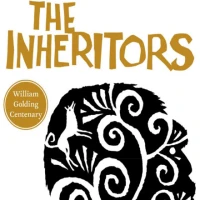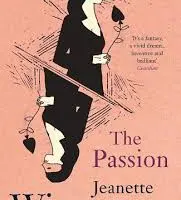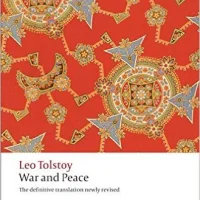Portrait of the Mother as a Young Woman, by Friedrich Christian Delius and translated by Jamie Bulloch
I read Portrait of the Mother as a Young Woman twice. Each time I read it straight through without a pause. It’s the third title released by Peirene Press in 2010 and for me the best yet. If I’d read it a month earlier it would have made my end of year list.
The novella takes place in Rome in January 1943. A young German woman is living in a German speaking enclave. She is heavily pregnant. She came to Rome to be with her husband Gert who had returned from the Russian front with an injured leg.
Gert’s leg is unhealed and his dressings need to be changed daily. Even so within a day of the woman’s arrival her husband was called back to duty. Reverses in North Africa mean that every soldier is needed. Gert is a military clerk, and clerks can serve sitting down.
The woman then is on her own in a foreign city. Her husband in his letters urges her to enjoy its beauty, but it’s hard to enjoy even the most marvellous things when those you love are far away and in danger. The entire novella takes place in the space of a single afternoon’s walk as the woman goes from the convent where she is staying to a Lutheran church where a rare afternoon performance of Bach is to be held. Along the way she thinks, and tries not to think.
Portrait is written in an unconventional style. There are no chapters and no full stops. Each paragraph either simply breaks with the next picking up from it or ends in a comma. It’s not quite a stream of consciousness. It’s more a stream of experience. As the woman walks she sees familiar but little understood sights of Rome. She thinks about her past and about her family and husband. They have not been married long. She thinks too about the war and about the regime back home, but those thoughts are dangerous and she shrinks away from them.
Formatting constraints with WordPress prevent me showing how the paragraphs are arranged on the page in the actual book. There each paragraph opens with an indented line, which gives it a far more pleasing appearance on the page than these quotes suggest. Otherwise the book is up to Peirene’s usual standards in terms of its sheer physical quality.
again she thought how fortunate she was, provided with everything she needed, not starving, and not having to queue like the Roman housewives or their maids, how lucky she was that at this hour she was able to go to church, and even to a concert, and was only vexed for a second by the question of
why there is not enough bread in wartime, and why it is getting ever scarcer, seeing that ever more land is being conquered and ever more victories are being reported, after all the wheat is still growing, and the rye, you can see from the window of the train how all the fields were blooming and ripening, so where is the bread, but that was not a question you could ask, it was a test, it was God’s will, he provided the daily bread and allocated it,
The woman is devout. Her father is a minister and so will her husband be – if he survives the war. They are fortunate. She keeps reminding herself how fortunate they both are. He is serving in a comfortable billet in North Africa which is far better than the Russian front. She is in Rome and is largely spared the privations the locals and people back home are suffering. Still, she is not with her husband. She might never be again.
Announcements of victories and exhortations to more of the same are painted on the street walls. They are seen and heard ever more frequently.
and yet there were too many defeats, in Russia the picture was no longer one of great victories, they hardly spoke about victories any more, they only spoke of the length of the war, and what was the point of this dreadful war if there were to be no more victories, they could not imagine a war without victories,
since she was twelve years old the Fuhrer of the German Reich had proceeded from one triumph to the next, for as long as she could remember he had only won, conquered, been celebrated, cheered, even during church services thanks were offered up for the political and military successes too, and her husband would only be able to return soon if they were victorious, but if more defeats threatened on almost all fronts he would stay there, his life in ever-increasing danger, and she would have to wait longer and longer,
it was impossible to think what might become of the beautiful Germany withouth victories, thinking this was forbidden, she forbade herself from thinking it, and while her yearning flew south to Africa,
What it is permissible to think is key here. This is a loving young mother. She is only recently wed. She is pious and humble. She is not well educated, but she is a decent person. Of course, in 1943 she is also a tiny part of the Nazi state. The state doctrine sits uncomfortably with her faith. Both her father and husband have spoken critically of Hitler and of how he seems to put himself above god. Both have reflected that the bible contains no requirements to hate the Jews. She has no personal animus against them either.
They are all, as the phrase goes, good Germans. None of them actively support Hitler. In fact, they do not agree with him. Her father and husband both still do their duty though and every time the gap between national rhetoric and church teaching occurs to her she does her best to think of something else. She just wants a small and quiet life. No doubt millions of Germans feel very similarly.
On her own she could not work out what you were allowed and not allowed to say, what you should think and what you ought not to think, and how to cope with her ambivalent feelings, all she could do was to keep these things to herself until his return,
…
there is the weapon of silence and the weapon of words, she learnt with the League of German girls, and as she preferred to remain silent anyway, especially if she was not confident of her thoughts and her faint doubts were not assuaged, she knew what she had to do, to trust patiently in God, and continue undeterred along her path,
Portrait contains, fittingly enough, a marvellous portrait of the young woman. She is convincing and for me sympathetic. Her plight is an easy one to care about and to relate to. She’s not in any sense a bad person. None of the people she knows seem to be bad people. They’re all just keeping their heads down, doing the best they can and waiting for the war to end.
That’s what gives this book its power and impact. What Portrait addresses is life under totalitarianism. Here it’s Nazi Germany, but I’m not sure what’s explored is unique to that. There have been many regimes throughout history where it could be dangerous to say the wrong thing or even to think the wrong thought. All empires built on terror depend on the acquiescence of the bulk of their population. Most of those living under such systems will just be ordinary people trying to get on with their lives.
In a brief foreword to Portrait Meike Zeirvogel of Peirene Press talks about how if “we can relate to her we come close to understanding the forces that were shaping an entire generation.” That’s exactly right. That said this isn’t a didactic book and there’s a lot I’ve not talked about here (partly as it’s skilfully examined in the review at Just William’s blog here which convinced me to read this book).
There’s the contrast between the Germanic, protestant, Northern European culture and the Italian, Catholic, Southern European one. There’s the dizzying spectacle of antiquity undermining the certainties of the present and refusing to comply with her Lutheran expectations. Above all for me personally though there’s the insight into the mind and experience of a person who in a small way was part of what is widely seen as the greatest evil of the twentieth century (some would argue for Stalin, Mao or Pol Pot as having that honour, lovely century the twentieth).
In terms of style I was initially concerned that the lack of chapters and more critically the lack of full stops would seem gimmicky and contrived. In practice though I found the rhythm of the text had a sonorous flow to it. It was smooth to read and felt like a river of thought and experience. A river full of eddies, small diversions and strong undercurrents barely visible on the surface. The style is unusual, but it works.
Both times I read Portrait I read it straight through on a single sitting. Each Peirene title is designed to be capable of being read in that way. Here though I think it’s actually important to do so. This is a short work of 117 pages and its structure is such that interruptions would break that flow I spoke of above. I would strongly recommend that anyone tempted to read this put aside a couple of hours in which to do so. The paragraph structure intentionally avoids any breaks in the narrative. Imposing breaks from outside would damage it and I suspect reduce the impact considerably.
I’ve read all three of Peirene’s 2010 titles. Stone in a Landslide is here and Beside the Sea here. Comparisons between different authors from different countries are both pointless and a bit absurd, but so by and large is life so I’m going to make some anyway.
This is my favourite Peirene title to date. It’s the first I’ve read twice (though I’ve kept all of them as they all bear rereading) and I thought both in terms of style and content it really stood out. It’s a deceptively quiet work which is both highly particular (Nazism) but with wider resonance (how good people can help evil prosper). I’ve taken out a subscription to Peirene’s 2011 titles and given the quality of 2010’s offering I’m very much looking forward to them.
Portrait of the Mother as a Young Woman. After writing this (thankfully after, or I’d have wondered what was left to say) I found several other reviews which may be of interest. Kimbofo’s is here. Andrew Blackman’s is here. Lizzy’s Literary Life’s is here. The Fiction Desk’s is here. Finally, Nicholas Lezard of the Guardian’s is here.
Just as I was about to press publish on this entry I saw that my copy of Peirene Title No. 4 had arrived. It’s Next World Novella, by Matthias Politycki and translated by Anthea Bell. I can’t wait.















Oh, this is a book I want to read. I bought it for my brother’s birthday, last year, on the basis of Tom’s (A common reader) review, and my brother and his partner both liked it. I haven’t read any Peirene books but what I’m hearing is telling me I should chase some down.
Fascinating post. This sounds really good. How long did it take you to get used to the unusual formatting? Or are you always aware of it? (Was that river you describe conscious or sub-conscious?
It is really good. WG, all the Peirene’s so far are. Sam, I was aware of it but it wasn’t a problem. Within a page or two it was just flowing past me.
The river was a thought that occurred to me as I was writing it up. It didn’t intrude at the time. It’s a good Peirene to start with if you haven’t read any of them, but then they’re all good ones to start with.
This sounds marvellous.
Unfortunately, I’m afraid it hasn’t been translated in French.
Could you try it in English?
Yes, I could. I know all the words in the quotes you typed. (rare) It just puts two layers of language between the text and me.
But reading it in German is out of the question, my German is too poor now.
I loved the fluidity of this book it was a breeze ,the pages just flew by Max ,it was my favourite of the three but they are all wonderful ,all the best stu
I was going to ask two questions:
1) was the formatting annoying?
2) How religious is this?
BTW, I’ve read several Penelope Lively novels and have enjoyed them.
I think you answered the first one in the review. The lack of capitals…well seems gimmicky to me. Am I alone?
Guy, the lack of capitals must be an ever more powerful effect in German, since they have capital letters for nouns. (proper and common nouns)
Max will answer but it seems to make sense here, to reflect the flow of her thoughts.
Max, sounds very interesting. Will order a copy.
The style sounds like Thomas Bernhard. Have you read any of his stuff?
Do you think there’s a trend for shorter works/novellas in publishing at the moment?
Questions …. questions …
Nice review Max, I’ll join the chorus of approval / interest for this one. 2 things struck me:
The style / format seems really similar to some of the Melville House novellas I’vre read recently – specifically Sandokan (also uses unpunctated paragraphs throughout, but they don’t run together like this one) and Close to Jedenew (where there is punctuation but hardly any differetiation between thoughts, actions, different points of view etc). These kinds of technique can take a little bit of effort to adjust to but seem to work really well in shorter stuff, where they might overwhelm or deaden a longer novel.
Secondly, your point about the highly particular setting (Nazism) having universal thematic relevance reminded me of comments made by Michael Haneke about The White Ribbon, where he in effect denied any particularity and said “this film could be about any country”, which I thought was odd.
The lack of capitals is arguably a gimmick, but not one I found intrusive and it may well be that it’s necessary (or at least helpful) for achieving that stream of experience I spoke of.
The character is religious. The book has nothing much to say on religion one way or the other. The issue is more the contrast between the beliefs she chooses/grew up with and those she is required to hold.
Laurence, I’ve not read Pritchard yet but I’ve read reviews which do tempt me. I have some other Eastern European works I want to get to first, but he’s definitely on my radar. I do think there’s a bit of a microtrend towards novellas presently and it’s one I absolutely welcome. It seems more a small publisher thing, but there’s Pushkin, NYRB, Peirene, Melville, Hesperus. It’s very welcome.
Leroy, I think the length point is a good one. What works well in novella format could get wearying over say 300 pages. I’ve not seen that Haneke yet (though Cachet, Hidden, I thought was spectacular) but I can see how it could be true. Nazism in many ways wasn’t unique. The rise of demagoguery, populism and fascism can happen in various ways in various places and has. There was peculiar horror with the Nazis because of the Holocaust, but the wider aspects of their rule aren’t unique to Germany.
The assertion of ideology over individual morality, the demonisation of the other, the acquiescence of the individual from desire to avoid controversy, none of that is specifically German. I think if you talk about the Holocaust you’re talking about the Holocaust, and I’d be suspicious of any book seeking to universalise that. The wider experience of the rise of Nazism and of life under that regime though, that I suspect can be universalised.
All true points Max, and with Heneke you’re always dealing with layers of ambuguity and a certain obliquity anyway – that applies both to the work and how he talks about it. Here’s a quote from him:
Hmmm. That lines up with the point you’re making (which I’d agree with) but I wonder if it fairly represents the uniqueness and particularity of his film.
Anyway, a stunning piece of work, a must-see I’d say.
Yes, it is on my (also overlong) to watch list. Interesting director Haneke.
I read this when it came out in German and it does have capitals just not at the beginning of the paragraphs and is therefore more readable in German.
I just read that last comment on Haneke and as I reviewed the movie I must say it does strike me as odd as well, that Haneke should have stated that the movie could have been located anywhere. It depicts the so-called black pedagogy which is specific for Germany of the time. many psychologists analyzing the period have come to the consclusion that, no, Nazism, wouldn’t have been possible in every country, Fascism, yes, but not Nazism. It is tied to German pedagogy, total obedience towards the father…
Thanks for the link, Max. I was fortunate enough to talk to the author about this book when Periene Press invited me to host an “in conversation” event at the Big Green Bookshop last year. Jamie Bulloch the translator was also part of the event. It was a really wonderful experience. Despite the nerves and all kinds of dramas happening at work (I was in the throes of redundancy), it was definitely one of my highlights of 2010. Christian was a delight — such a charming man. The story is actually about his mother — and the baby she is pregnant with is him. The hair stood up on the back of my neck when he told me that.
kimbofo: great anecdote, I can imagine that would have been a hair-prickling moment….
caroline, I’m glad to know it wasn’t just me! Everything in the film seems so calibrated to spelling out detail & specifics – of hierarchies, of morality, of behaviour – that it did seem an odd (and defensive?) comment. I likewise felt that, whatever generalisations one makes about the rise of totalitarian regimes, the fact is Nazism did uniquely come about in Germany and the examination of that is valid and doesn’t require the blanket question about fanaticism. Surely the point Max is making in his review is that most Germans were in fact not fanatics, but quietly, possibly troubledly, possibly unwillingly acquiescent?
I’ll read your review when I get the chance. The pedagogy point is an interesting one.
‘skillfully’ – I like that, Max, thank you. So glad to read that you enjoyed this one so much. I reckon all novellas (and novels if you have the time) are much better appreciated when read in a single sitting, especially this one due to its format. It’s finding the time though isn’t it! Like you I’m very excited about the next Peirene title and indeed the others in their ‘year of the man’
Caroline,
Is it so different to how Stalin was portrayed, or Mussolini, or Ataturk for that matter? I suspect that’s what Haneke was getting at.
Of course it’s his take on his film, there’s no guarantee his comment is actually correct. It’s just his view of matters. His film may be broader or narrower than he intends.
Kimbofo, thanks for that anecdote. That does sound like a good event and nice to have the author and translator there. His mother eh? Interesting.
I only said it because it’s true William (or is it Will, do you have a preference?). I’d missed the year of the man bit. I hadn’t realised they were themed actually.
This is interesting… Whenever the book was in the press in Germany the fact that it was about his mother was always the first thing that was mentioned. Seems as if Pereine didn’t want to play this card in their marketing.
Max, didn’t get your comment. Haneke doesn’t depict Hitler. I agree with you if we focus on the leader of a totalitarian system, then we probabaly see parallels. Haneke’s aim was the society and there is a difference between Nazism and fascism. The Ogre is an interesting movie in that context (and probably also Tournier’s novel it is based on). And Napola, of course.
I felt that the book was short enough for the prolonged single paragraph to work quite well.
At first glance, the novel feels like a simple read, but, as you suggest, it has many subtleties which tackle the dilemma of how “good” Germans could support such a disastrous regime. I liked the way that her “settled” mind-set was being challenged from all sides – but the challenges were insufficient to dislodge her love for the fatherland – how would she have been thinking five years later I wonder?
Looking back Caroline I’m not sure I get my comment entirely. I think it was more to do with the book and got muddled, and was simply that while there are undoubted differences between nazism and fascism (and indeed communism) the psychology of acquiescence of the individual under both systems can take very similar forms allowing a degree of universalisation.
Tom, you keep getting spamfiltered and I don’t know why. Apologies. Hopefully the system will eventually notice I always press “Approve” for your posts. I agree on the paragraphs and as you say it has a lot of subtleties. It’s what I like in the best novellas. They continue to unpack in the mind long after one has finished reading them.
I don’t mind Will or William, Max, most go for the shorter as it’s easier. Yes, Peirene’s first three were female protagonists and the next three will be male. God knows what happens the year after that!
Pingback: Sunday Caught My Interest « Reflections from the Hinterland